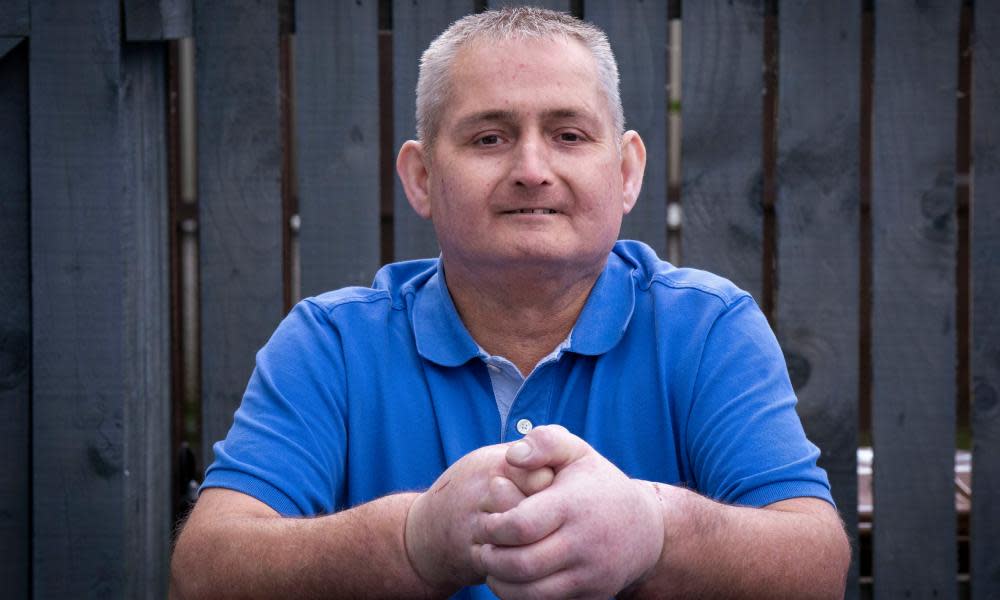NHS performs world’s first double hand transplant for scleroderma

A roof tiler whose hands were left unusable by an autoimmune disease has told of his joy after NHS surgeons successfully performed the world’s first double hand transplant for the condition.
Steven Gallagher was forced to stop working after scleroderma, a condition that scars the skin and internal organs, caused his hands to close up into a fist position. After first developing an unusual rash about 13 years ago, the condition then affected his nose and mouth, his fingers began curling in and he suffered “horrendous” pain.
But after undergoing a 12-hour operation at Leeds teaching hospital NHS trust – the first time anywhere in the world that hand transplantation has been used to replace hands terminally affected by scleroderma – he can turn on the tap and fill a glass of water for the first time in years. Gallagher, 48, is now hoping to return to work.

“After the operation I woke up and it was quite surreal because before it I had my hands and then when I woke up from the operation I still had hands so in my head I never really lost any hands,” he said. “These hands are amazing, everything has happened so quickly. From the moment I woke up from the operation I could move them.”
Gallagher spent about four weeks in Leeds general infirmary after the operation in December 2021, and has regular visits to hospitals in Glasgow for physiotherapy and monitoring. His condition is improving more than five months on from the operation, and although he cannot do tasks requiring great dexterity such as doing up buttons, the father of three can do things like stroke his family’s dog.
“It has given me a new lease of life,” he said. “I’m still finding things hard just now but things are getting better every week with the physio and the occupational therapists, everything is just slowly getting better. The pain is the big thing. The pain before the operation was horrendous, I was on so much pain relief it was unbelievable, but now I’ve no pain at all.”
When experts first suggested the idea of a double hand transplant, Gallagher, from Dreghorn in North Ayrshire, initially dismissed the idea. But he subsequently decided to go ahead despite the risks – and is grateful to the person and family of the donor who made the transplant possible.
“My hands started to close, it got to the point where it was basically two fists, my hands were unusable, I couldn’t do a thing apart from lift things with two hands,” he recalled. “I could not grab anything, it was a struggle to get dressed and things like that.
“When Prof Hart in Glasgow mentioned to me about a double hand transplant, at the time I laughed and thought that’s space-age kind of things … My wife and I spoke about it and came to the agreement to go for it. I could end up losing my hands anyway, so it was just a case of letting them know I was going to go with it.”
Prof Simon Kay, of Leeds teaching hospitals NHS trust, said the surgery was “a huge team effort” with as many as 30 health professionals involved.
“Having a hand transplant is very different from a kidney or other organ transplant, as hands are something we see every day and we use them in so many ways,” Kay said. “For this reason, we and our expert clinical psychologists assess and prepare patients, in order to be sure that they will be able to cope psychologically with the permanent reminder of their transplant, and the risk the body may reject the transplanted hands.”

 Yahoo Movies
Yahoo Movies 
